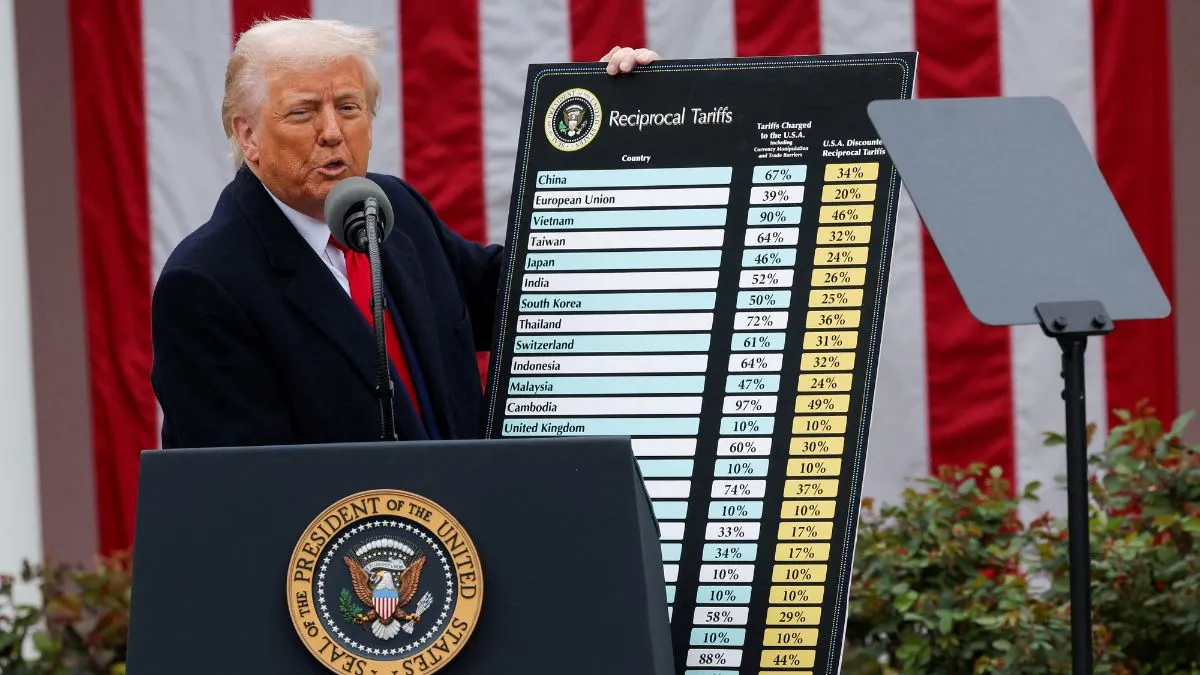- By Supratik Das
- Sat, 30 Aug 2025 07:26 AM (IST)
- Source:JND
US President Donald Trump on Friday rejected a federal appeals court ruling that held the majority of his government's tariffs illegal, maintaining that the measures stand and are crucial to safeguarding American workers and industries. The development has paved the way for what could be a high-stakes legal showdown before the US Supreme Court.
In a Truth Social post, Trump blamed the appeals court for exceeding its power and declared that he would maintain tariffs in spite of the ruling. “ALL TARIFFS ARE STILL IN EFFECT! Today a Highly Partisan Appeals Court incorrectly said that our Tariffs should be removed, but they know the United States of America will win in the end. If these Tariffs ever went away, it would be a total disaster for the Country,” the President wrote. He argued that scrapping the tariffs would weaken the nation financially, expose American industries to unfair competition, and ultimately “destroy the United States of America,” Trump posted.
Court Cites Presidential Overreach
The US Court of Appeals for the Federal Circuit held that Trump had abused his power by imposing some tariffs under the International Emergency Economic Powers Act (IEEPA). The court observed that the Constitution gives the authority to impose tariffs and taxes alone to Congress. "Only Congress has the constitutional authority to impose tariffs and taxes," the verdict read, highlighting the limitations of presidential discretion in trade policy. While ruling the tariffs illegal, the court permitted them to be in force during the ongoing legal process, providing the White House with a chance to appeal to the Supreme Court.
White House press secretary Kush Desai quickly came to Trump's defence, arguing that the President was acting within his authority. President Trump legally exercised the tariff authority vested in him by Congress in order to protect our national and economic security from foreign threats," Desai stated in a statement. "The President's tariffs stand, and we are eager for final triumph on this issue," he continued. Treasury Secretary Scott Bessent previously had said that tariff talks with major US trading partners could wrap up around Labor Day. But the court decision now promises to delay that schedule.
Tariffs Target China, Mexico, Canada And Beyond
The decision directly challenged two groups of tariffs, the "reciprocal" tariffs levied against individual nations and targeted tariffs on Chinese, Canadian, and Mexican goods. The Trump administration had explained these actions on national security grounds and as a reaction to the perceived failure of those countries to stop trafficking in fentanyl into America. Other trade tariffs, including those on steel and aluminium imports under the Trade Expansion Act of 1962 and the Trade Act of 1974, are not implicated by this move directly.
A recent report by investment bank Jefferies suggested that Trump's steep 50 per cent tariffs imposed on Indian goods were motivated in part by the personal frustration at not being allowed to mediate the India-Pakistan conflict. New Delhi has repeatedly refused to accept third-party mediation of its differences with Islamabad. The report further cited that India's agriculture sector is still a sore point in bilateral trade negotiations, as no government wants to open the sector to foreign imports due to its significance to almost 250 million farmers and workers.
The Trump administration is expected to appeal the ruling to the US Supreme Court, where six of the nine justices lean conservative—including three nominated by Trump himself. This could give the White House confidence in securing a favourable verdict. For now, however, the tariffs remain in effect, keeping global markets on edge as Washington’s trade policy continues to spark legal and diplomatic battles.

